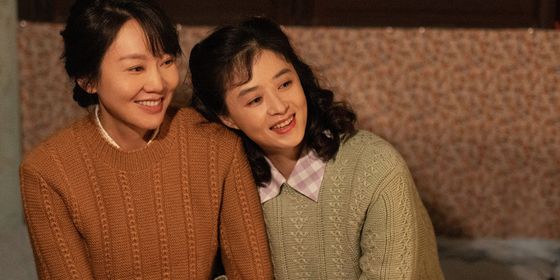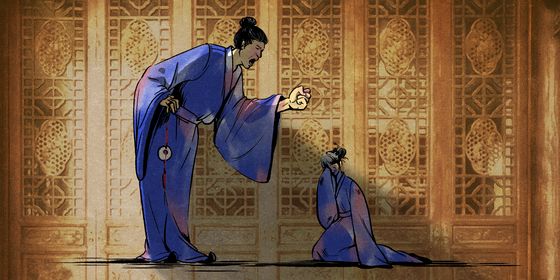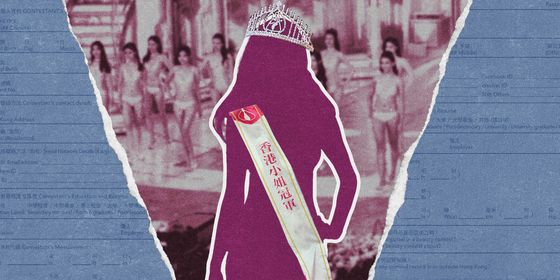Despite its corny name, highly rated new series “Delicious Romance” is shattering years of shallow female characterization on television
“Why is the female lead [on TV] always silly and sweet, while the supporting female is always a manipulative bastard?” Xia Meng, vice president of an internet television company, rails at the computer as she watches an online series in a conference room. On Xia’s screen, the leading actress is bullied by her female colleague before her (male) boss comes to help her. “Is the leading lady only able to retaliate against this bully because she knows a powerful boss?”
This is the scene in which new TV series Delicious Romance goes fully meta, knowing its audience is tired of the cliché plots of many female-oriented dramas in the Chinese mainland. But even when it doesn’t lean on the fourth wall, the series, which is rated 8.4 out of 10 points on reviewing platform Douban and has been dubbed a Chinese Sex and the City (despite its corny name), pokes fun at the stereotype of “傻白甜 (silly, innocent, and sweet)” that permeates the characterization of female leads in urban dramas.
Directed by Taiwan’s Leste Chen and Hsu Chao Jen, the series tells the coming-of-age story of three urban women with totally different personalities after experiencing hardships in career, life, and love during the Covid-19 pandemic. Far from the stereotyped image of being unbelievably naïve and lucky, or extremely pretentious and noble, the three women in Delicious Romance have their own charm and character defects that viewers have deemed to be closer to reality.
Fang Xin (Zhang Hanyun) is a gorgeous former housewife who returns to the workplace after divorcing her unfaithful husband. Xia Meng (Wang Ju) is a corporate powerhouse who makes her boyfriend feel insecure because of her outstanding abilities. Liu Jing (Li Chun) is a perfectionist food blogger who is picky about both dining and love.
These are women who are not put up on a pedestal, but saturated with the flaws of everyday life. Fang Xin chooses, slightly selfishly, to expose the true colors of another woman to her boyfriend, knowing full well this will hurt the woman. Despite her outstanding career, Xia Meng repeatedly lies about her abilities to Lu Bing, her new boyfriend, out of fear he would feel bad knowing she is richer and more successful than him.
Far from being dealbreakers, these flaws seem to have made the characters more lovable and relatable to viewers. “It is what people are really like. No one is perfect, but what is important is whether they reflect on themselves and make changes, which has also been shown in the drama in a lighthearted way,” Zhang Di, a viewer in Anhui, tells TWOC.
Delicious Romance’s achievements are all the more impressive as a small-budget drama without a star-studded cast or extensive publicity. Gaining popularity mainly by word of mouth, it has beaten similar female-centric urban dramas in Douban ratings such 2020’s Nothing But Thirty, which has 6.6 points, 2017’s The First Half of My Life, with 6.4 points, and 2016’s Ode to Joy, whose first season has 7.4 points. Viewers heaped high praise on it on Weibo, commenting that they had binge-watched 10 episodes in one go.
The series captures a great deal of dilemmas experienced by today’s women: tremendous pressure from parents to get married, anxiety over body image, sexism, and harassment in the workplace, and criticism of being too strong and independent. “I feel the pain suffered by Liu when she is denied employment on the grounds of being aged and single,” a viewer, Chen Xin, tells TWOC.
In the show, Liu is let go from her job at a bank due to the sluggish economy during the Covid-19 pandemic. She, and not other staff members, is sacrificed because she is older and unmarried, with no family to support. “Although I am only 23 years old, an interviewer recently hinted I will have to face the question of retirement at 35 when I applied for a job in a small internet company,” Chen says.
Another viewer, Beijing postgraduate student Wang Hui, felt encouraged by Fang’s story arc, in which the character achieves financial and emotional independence by working hard and defends herself against harassment by a client of her company.
“Many series with female ensemble casts advocate female independence, but rather than focusing on women themselves, they just make up corny plots and set up a more powerful male character as the savior of women,” she says, citing a moment when the heroine in The First Half of My Life transformed from a dependent housewife to a confident and self-reliant career woman with the help of her ex-husband and her best friend’s boyfriend, who had feelings for her. “It turned my world upside down.”
Consumerist values is cited as one of the culprits behind shallow portrayals of female characters in female-centric dramas. In an article in China Newsweek magazine, movie critic Ge Duo criticized award-winning director Feng Xiaogang for his misunderstanding of female independence in his first online television series, Crossroad Bistro, which tells a story of five women of different backgrounds who open up a restaurant together when they hit a snag in their lives. Despite being supposedly ordinary people, the female characters reside in large mansions in Beijing and make jarring displays of wealth, and achieve “independence” by spending money.
On Delicious Romance, however, the complexity of female portrayals in the show in turn makes the representation of male characters nuanced as well. The typical male lead in female-centric dramas is either a rich and powerful mentor for women, like the heroes in both the First Half of My life and Ode to Joy, or a villainous philanderer as in Nothing But Thirty.
Male characters’ in Delicious Romance, however, are far more complex and human: such as Fang Xin’s unfaithful ex-husband remembering all the things she’s allergic to even after they’ve separated; and Song Chao, an admirer of Liu Jing, who is undoubtedly handsome and kind, but wrestles with his own flaws as an idle son of a rich family. There is no male boss falling from the sky to solve the heroine’s problems.
Not everyone is a fan of the show: Some viewers on Weibo criticized the excessive love triangles, in which each of the three female characters are wooed by two men at the same time, and wondered why female-centric shows feel obligated to include love interests. Other viewers are frustrated by the fast pacing of the story and some abrupt editing.
Some viewers commented on Douban that Feng, a male director, still uses the “male gaze” and fails to present the inner world of female character. More female directors and writers joining the production team of female-centric TV dramas may lead to some improvements.
According to Guduo Data, a leading online film and television data analysis platform in China, series targeting women made up 63 percent of the 294 online series (excluding micro-dramas) shown in China in 2020, while female viewers accounted for 62 percent of the TV drama market in 2020 according to Datawin, another research company. There is a market for shows like Delicious Romance that feature well-rounded female characters—in the new year, perhaps more TV series will take the hint.













